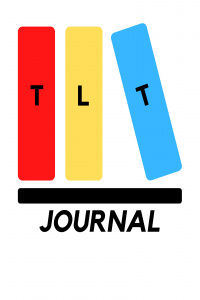A systematic approach to critical multiculturalism and teacher education in EFL context: An integrative research review
A systematic approach to critical multiculturalism and teacher education in EFL context: An integrative research review
Critical multicultural education (CME) challenges power imbalances in society and calls for the equitable distribution of power. It aims to address biases based on gender, class, and race, and improve social, economic, and educational opportunities for all individuals. While there have been several studies conducted on CME in relation to teachers and teacher training, there is a need to examine its broader implications for teacher education. This study aims to investigate the implications of CME on teacher education by analyzing different studies on this subject and their findings in various contexts. 14 relevant articles were compiled, categorized, and coded based on their context and findings, and descriptive data analysis was conducted. The study compared and contrasted the findings of the different studies and made generalizations about the implications of CME on teacher education and how it can be applied in the EFL context. The study highlights the importance of understanding the potential impact of CME on teacher education and provides insights for educators to effectively integrate CME principles into their teaching practices.
Keywords:
Critical multicultural education, critical pedagogy, critical theory, EFL context teacher education,
___
- Acar-Ciftci, Y. (2016). The Critical Multicultural Education Competencies of Preschool Teachers. Journal of Education and Learning, 5(3), 258-271.
- Acar-Ciftci, Y. (2019). Multicultural Education and Approaches to Teacher Training. Journal of Education and Learning, 8(4), 136-152.
- Acar-Ciftci, Y., & Gurol, M. (2015). A Conceptual Framework Regarding The Multicultural Education Competencies Of Teachers. Hacettepe University Journal of Education, 30(1), 1-14.
- Acuff J. B. (2018) ‘Being’ a critical multicultural pedagogue in the art education classroom, Critical Studies in Education, 59(1), 35-53.
- Apple, M. W. (2018). The critical divide: Knowledge about the curriculum and the concrete problems of curriculum policy and practice. Nordic Journal of Studies in Educational Policy, 4(2), 63-66.
- Archer, L., & Francis, B. (2006). Understanding minority ethnic achievement: Race, gender, class and success. Routledge.
- Arsal, Z. (2019) "Critical multicultural education and preservice teachers’ multicultural attitudes", Journal for Multicultural Education, 13(1), 106-118.
- Banks, J. A. (2019). Multicultural education: Issues and perspectives. John Wiley & Sons.
- Banks, J. A., & Banks, C. A. M. (Eds.). (2019). Multicultural education: Issues and perspectives. John Wiley & Sons.
- Beard, K. V. (2016). Examining the impact of critical multicultural education training on the multicultural attitudes, awareness, and practices of nurse educators. Journal of Professional Nursing, 32(6), 439-448.
- Cicchetti, D. V. (1994). Guidelines, criteria, and rules of thumb for evaluating normed and standardized assessment instruments in psychology. Psychological assessment, 6(4), 284.
- Connell, R. W., & Messerschmidt, J. W. (2005). Hegemonic masculinity: Rethinking the concept. Gender & society, 19(6), 829-859.
- Crookes, G. V. (2013). Critical ELT in action: Foundations, promises, praxis. Routledge.
- Daly, B., & Suggs, S. (2010). Teachers' experiences with humane education and animals in the elementary classroom: implications for empathy development. Journal of Moral Education, 39(1), 101-112.
- Gerber, A. S., Huber, G. A., Doherty, D., Dowling, C. M., & Ha, S. E. (2010). Personality and political attitudes: Relationships across issue domains and political contexts. American Political Science Review, 111-133.
- Giroux, H. (2018). Pedagogy and the politics of hope: Theory, culture, and schooling: A critical reader. Routledge.
- Glaser, B. G., & Strauss, A. L. (1967). The discovery of grounded theory: Strategies for qualitative research New York: Aldine Transaction.
- Gorski, P. C. (2009). What we're teaching teachers: An analysis of multicultural teacher education coursework syllabi. Teaching and Teacher Education, 25(2), 309-318.
- Gorski, P. C., & Parekh, G. (2020). Supporting Critical Multicultural Teacher Educators: Transformative teaching, social justice education, and perceptions of institutional support. Intercultural Education, 1-21.
- Karakaş, H., & Erbaş, Y. H. (2018). Öğretmen adaylarının çokkültürlü deneyimleri ve (Türkiye’deki) kültürel ve sosyal gruplara yönelik düşünceleri. Uluslararası Sosyal ve Eğitim Bilimleri Dergisi, 5(9), 59-81.
- Kim, M. (2019). A Critical Multicultural Approach to Korean English Education for Socially Just Diversity. OMNES: The Journal of Multicultural Society, 9(2), 78-99.
- Kim, Y., & Choi, M. (2020). Towards critical multicultural teacher education in the midst of ethno-nationalism: Korean pre-service teachers’ international learning experiences. Teaching and Teacher Education, 96, 103155.
- Kurtuluş, F. & Arsal, Z. (2023). Effects of Critical Multicultural Education on Preservice Teachers’ Multicultural Attitudes and Efficacy. Abant İzzet Baysal Üniversitesi Eğitim Fakültesi Dergisi, 23(1): 360-378.
- Ladson-Billings, G. (2006). It's not the culture of poverty, it's the poverty of culture: The problem with teacher education. Anthropology & Education Quarterly, 37(2), 104-109.
- Liggett, T. (2011). Critical multicultural education and teacher sense of agency. Teaching Education, 22(2), 185-197.
- Mambu, J. E. (2022). Co-constructing a critical ELT curriculum: A case study in an Indonesian-based English language teacher education program. TESOL Journal, 13(3).
- May, S., & Sleeter, C. E. (Eds.). (2010). Critical multiculturalism: Theory and praxis. Routledge.
- McHugh, M. L. (2012). Interrater reliability: the kappa statistic. Biochemia medica, 22(3), 276-282.
- Miles, M. B., & Huberman, A. M. (1994). Qualitative data analysis: An expanded sourcebook. Sage.
- Neve, H., & Collett, T. (2018). Empowering students with the hidden curriculum. The clinical teacher, 15(6), 494-499.
- Ong, P. A. L. (2022). Critical multiculturalism and countering cultural hegemony with children's literature. Waikato Journal of Education, 27(1), 51-65.
- Patton, L. D. (2016). Disrupting postsecondary prose: Toward a critical race theory of higher education. Urban Education, 51(3), 315-342.
- Rodríguez, L. F. G. (2015). Critical intercultural learning through topics of deep culture in an EFL classroom. Íkala, revista de lenguaje y cultura, 20(1), 43-59.
- Shor, I. (2012). Empowering education: Critical teaching for social change. University of Chicago Press.
- Ukpokodu, O. N. (2003). Teaching multicultural education from a critical perspective: Challenges and dilemmas. Journal of the National Association for Multicultural Education, 5(4), 17-23.
- Yayın Aralığı: Yılda 2 Sayı
- Başlangıç: 2015
- Yayıncı: Leyla HARPUTLU
